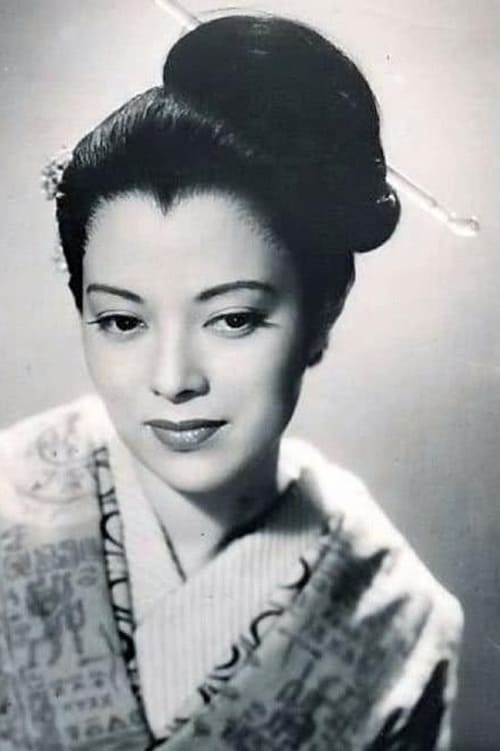Yoshiko Yamaguchi
Birth : 1920-02-12, Fushun, Manchuria
Death : 2014-08-07
History
Yoshiko Yamaguchi, also known by her stage names Shirley Yamaguchi and Li Xianglan, is a China-born Japanese actress and singer who made a career in China, Japan, Hong Kong, and the United States. She was elected as a member of the Japanese Parliament in the 1970s and served for 18 years.

(archive)
A history of anti-Asian racism and yellowface in Hollywood after the 1941 Pearl Harbor attack.

May Kawaguchi is a famous Japanese fashion designer. Returning to Tokyo from her home in New York, she travels incognito with a tour group, in hopes of having a quiet vacation without being noticed. But she is spotted and the press has a field-day with the returning celebrity. Her hopes of rest shattered, she agrees to put on a large-scale fashion show.

Spies, Military Documents and Traitors.

The White Lady
Lavish Japanese-Chinese coproduction based on an ancient Chinese legend about a man who falls in love with a snake goddess in human form.
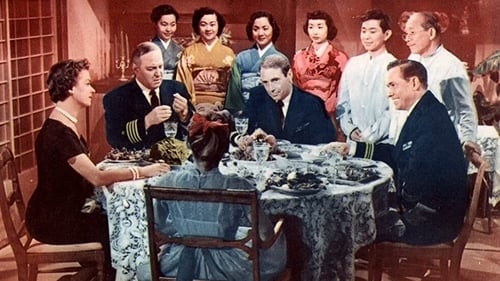
Akashi
Japanese women, seeng how well American soldiers stationed in their country treat their wives, demand the same from their husbands.
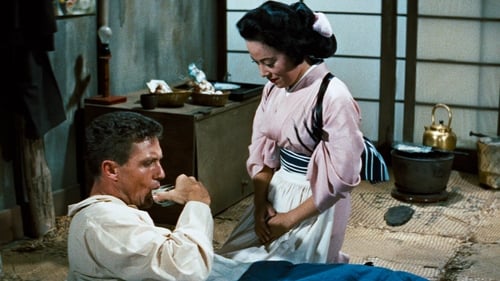
Mariko
Eddie Kenner is given a special assignment by the Army to get the inside story on Sandy Dawson, a former GI who has formed a gang of fellow servicemen and Japanese locals.

Chin Ping Mei 金瓶梅 (1955) is a Hong Kong feature film written by Ku Wen-Chung and directed by Wang Yin, it was produced by Shaw Brothers Studio. This is an adaptation of the Lotus Pan tale.

Yukiko Nogami is rescued during a mountain blizzard by handsome forester Shinkichi, and the two subsequently fall in love. But when Shinkichi dies in an avalanche, Yukiko leaves the mountains in despair and takes a job in a bar where she becomes deeply involved in the personal lives of several of the patrons. One day she thinks she sees Shinkichi alive, but it turns out to be a gangster named Hayakawa, a man on the run who bears an astonishing resemblance to Yukiko's lost love. Against her better judgment, she is drawn to help Hayakawa, though clearly danger follows him.

Li Lili
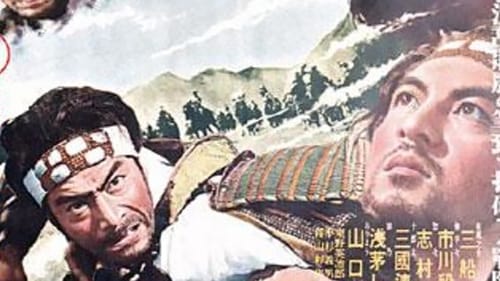
Oryo
Soldiers Hayate and Yaheiji secretly escape from their besieged castle. Hayate has left behind his lover, Kano. On his way, Hayate is wounded and cared for by O’Ryo, who falls in love with him. But when Hayate accidentally kills her caretaker, he flees, with O’Ryo in pursuit. Subsequently, Hayate's comrade Yaheiji falls in love with Oryo. Kano, the lover left behind by Hayate, believes him dead, and becomes involved with another soldier, Jurota. When Jurota defects to the opposing army, he takes Kano with him. A double set of love triangles has developed, wherein each man and each woman loves one and is loved by another. Finally only combat and self-sacrifice can untangle the weave.

A Japanese woman, the mistress of an American, falls in love with her servant.
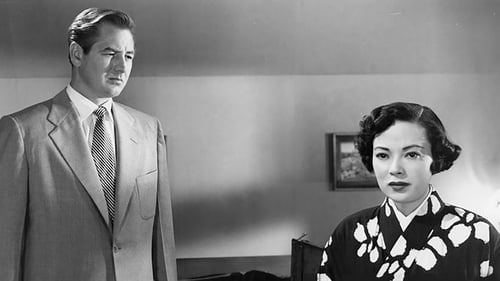
Tae Shimizu
A Korean war vet and his bride face subtle and sometimes extreme racism when they return to his home in rural California.
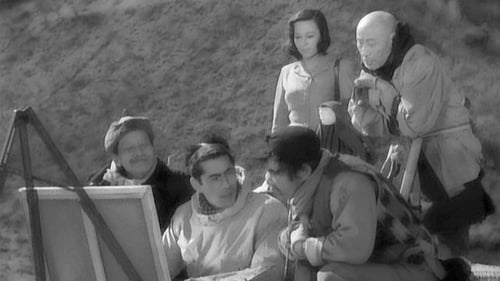
Miyako Saijo
A celebrity photograph sparks a court case as a tabloid magazine spins a scandalous yarn over a painter and a famous singer.
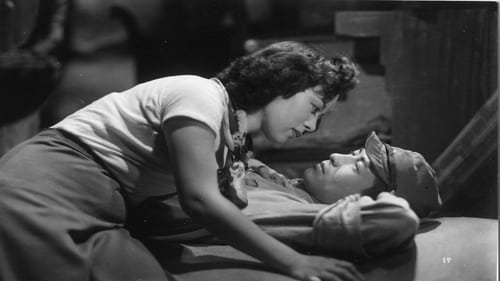
Harumi
Mikami, a Japanese soldier, is captured by Chinese forces. Although able to escape, he is treated with contempt by his peers. After falling in love with a prostitute named Harumi, she convinces him to desert the army and live with her. Directed by Senkichi Taniguchi with a screenplay by Taniguchi and Akira Kurosawa and assistant direction by Ishiro Honda. Kurosawa's final credit as a screenwriter was removed from initial release due to various rewrites.

Beautiful singer

A love triangle among a girl, her poor boyfriend, and a rich company president.

Life and love in corrupt postwar Tokyo, as a young couple struggles against both the law and the mob.

Singer
Two Korean conscripts undergo Imperial Japanese Army training, much to the pleasure of their families.

Mariko

Sayon
Based on the true story of a 17-year old Atayal girl called Sayun Hayun from Nan'oku village, Giran district, Taihoku Prefecture (in current Taiwan) who went missing and was thought to have drowned whilst helping carry the luggage of her teacher Masaki Takita during a storm in 1938.

The life and story of Lin Zexu and the First Opium War.

An inept and recently graduated Japanese man begins working in the administration of Manchuria, under the supervision of his uncle. Meanwhile, he becomes acquainted with both a Japanese and Manchurian woman.

A hostile Chinese nurse (Yamaguchi) who works in an orphanage is won over by the care and commitment of the Japanese doctor (Sano) who treats her wards. Disease outbreaks and family obligations, however, threaten to torpedo their budding romance.

Manchurian girl

A Japanese army engineer (Hasegawa) on the mainland must put his personal feelings for a beautiful Chinese woman (Ri) aside if he is to succeed at building a highway through the "bandit"- (aka anti-Japanese militia-) infested hinterlands.

Second part of the Comedy-Musical about the legendary Monkey King.

Comedy-Musical about the legendary Monkey King.

Oriental Woman
A legendary pre-war comedy operetta starring Enomoto Kenichi, Hideko Takamine and Li Xianglan. The Sanzo Ikkou continues its westward journey, on a mission to prevent a demonic resurrection. As Genjo Sanzo, Cho Hakkai, Sha Gojyo, and Son Goku (Kenichi Enomoto) fight their way to their goal, their path is fraught with internal strife.

Liqin

Wartime propaganda filmed by the Japanese in occupied China, Shirley Yamaguchi portrays an orphan rescued from the streets by a kindly Japanese merchant marine officer. Part spy thriller and part Shanghai travelogue, it was part of a popular series known as "Chinese Continental Friendship" made by the occupying Japanese in China.

Song of the White Orchid was a co-production of Toho and Mantetsu, the railway that served the colonial region of Manchuria, and the first film in the Kazuo Hasegawa/Shirley Yamaguchi (Ri Koran) “Continental Trilogy.” Handsome Hasegawa (representing Japan) runs up against an impertinent Yamaguchi (representing the continent); not surprisingly, in the course of the film the woman comes around and realizes the benevolent intentions of the Japanese. In Song of the White Orchid Yamaguchi leaves Hasegawa, who plays an expatriate working for the railway, because of a misunderstanding. She joins a communist guerilla group plotting to blow up the Manchurian railway. Learning of the subterfuge that led to the misunderstanding, she renews her faith in Hasegawa—and by extension Japan—and tries to undermine the plot.
